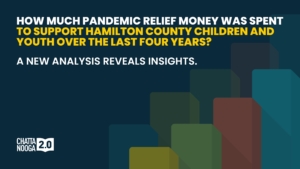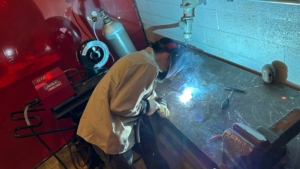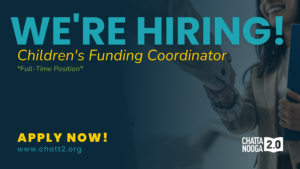Bridge to Completion, a recent report produced by the Nashville Public Education Foundation and the Tennessee College Access and Success Network (TCASN), shows that making the leap from high school to college graduation is more challenging than it should be for too many Nashville students. While 80 percent of Nashville’s high school seniors take concrete steps toward college, only 24 percent of Nashville public high school graduates earn a postsecondary degree within six years.

Why does this matter for Chattanooga?
The report illuminates challenges students face, particularly low-income students, on their path to a degree or certification. The report also highlights best practices happening in Nashville and in urban districts across the country that can help students overcome these challenges and provides concrete recommendations to help galvanize action. Chattanooga is already a leader in addressing college attainment, using college access and success data to inform practice, and providing high-quality college counseling to public school students, but the report provides opportunities to identify common challenges and innovative practices that could help move Chattanooga even further.
Issues of College Affordability are Keeping Students from Finishing College
Bridge to Completion stakeholder interviews revealed that increasing numbers of students are commuting to college, living at home to save money even when they attend colleges that offer on-campus housing. Students and their families are struggling to make ends meet. These students are working, often full time, while in school. Students are dropping out because their precarious financial situations cannot manage unexpected expenses like a car repair bill. This college affordability quagmire is caused by policies at the federal, state, and institutional level as well as student perceptions (or misperceptions) of how they can afford to attend college. It is likely that Chattanooga’s public school graduates face similar circumstances.
Innovative Practices Can Improve Outcomes
While the full report documents a wide array of best practices, these three are helping Nashville move the needle:
- One-stop college success support: Nashville State Community College partners with the Oasis Center to offer on-campus resource centers where students receive assistance with their college experience but can also get help with employment skills, eat a hot meal, or receive assistance accessing food, transportation, and housing.
- Targeted scholarships for vulnerable populations: Programs like Bridges to Belmont (Belmont University) and Pionero Scholars (Lipscomb University) not only provide financial assistance to students from high-poverty high schools or students from underrepresented minority groups, they also provide intensive college success services to recipients to give them the support they need to succeed in college.
- Cohort-based programming: Nonprofit organizations like the Martha O’Bryan Center provide support to students while they are in college and prioritize creating peer support networks within cohorts so students can support one another.
Every student who has the qualifications and desire to go to college should be able to achieve that dream. TCASN is committed to making these dreams happen in communities across Tennessee.





